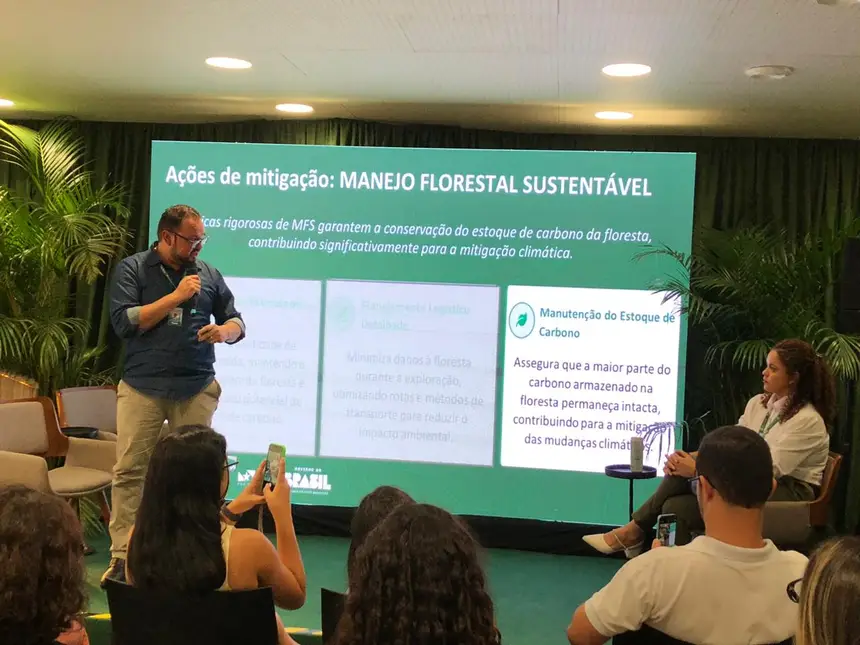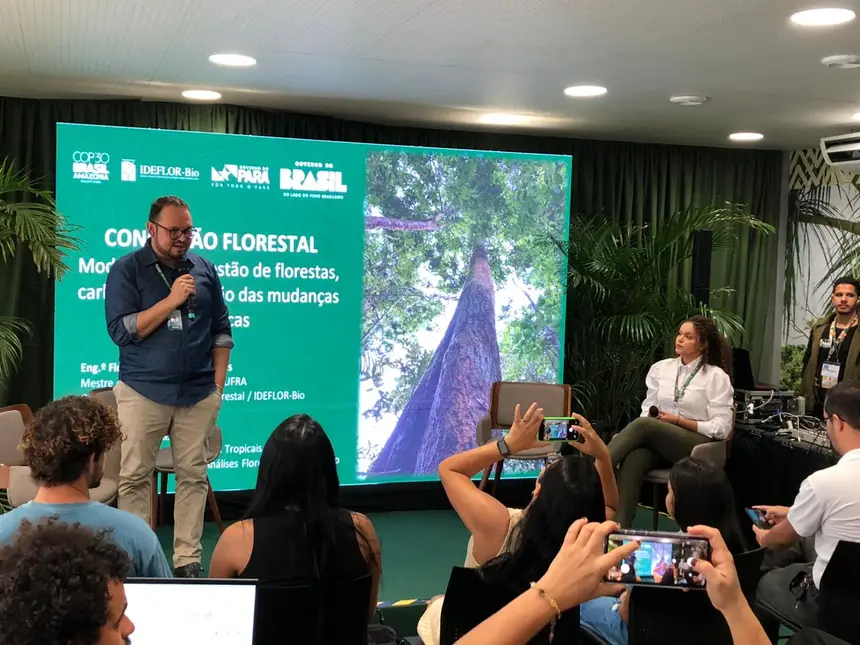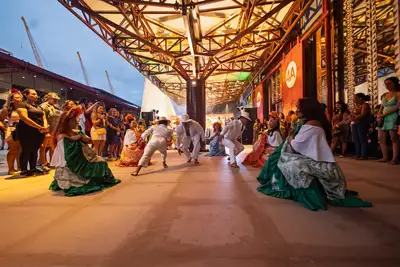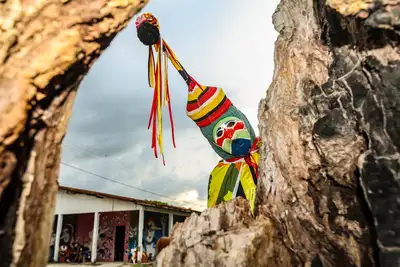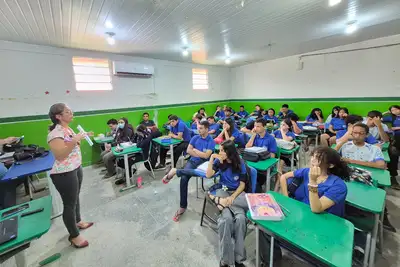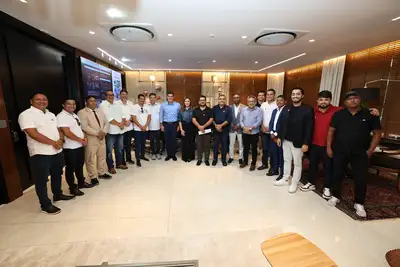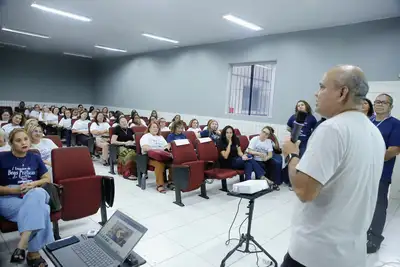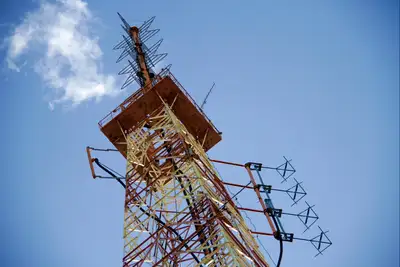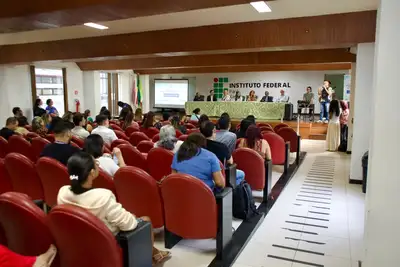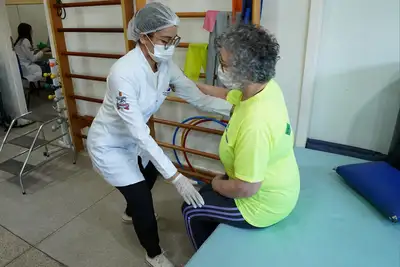Forest concessions in Pará stand out at COP30 as a model for carbon stock
The climate mitigation initiative of the Government of Pará, led by Ideflor-Bio, has established itself as an international reference in conservation

The forest concessions in Pará gained prominence at the Pará Pavilion, in the Green Zone of COP30 with the presentation of the panel "Forest Concession: management modality for forests, carbon, and climate change mitigation," led by the Forest Monitoring Manager, Richard Rodrigues, and the Planning and Forest Analysis Manager, Thais Novais, both from the Institute of Forest Development and Biodiversity of Pará (Ideflor-Bio).
The presentation highlighted how the Pará model of forest management, led by the environmental agency of the Government of Pará, through the Directorate of Public Production Forest Management (DGFLOP), has established itself as an international reference in conservation, sustainable development, and maintenance of carbon stocks.
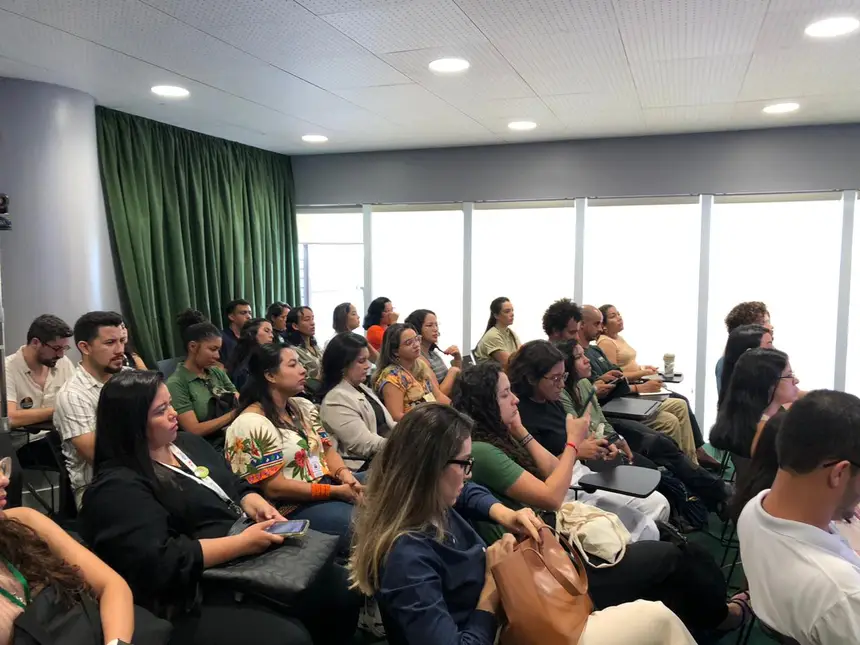
The panel provided an overview of the results achieved by the forest concessions program in the state. The initiative, considered one of the most structured in the Amazon, combines income generation, sustainable management, and preservation of public forests, preventing the advance of illegal deforestation and strengthening the local bioeconomy.
Planning - Richard Rodrigues emphasized that the forest concession model adopted by Pará allows concessionary companies to manage in a planned manner, ensuring the maintenance of carbon stocks in the areas under management. According to him, the new legislation opens opportunities for the development of carbon projects — such as Reducing Emissions from Deforestation and Forest Degradation (REDD+) — that help economically value the standing forest. "REDD+ projects allow for the storage of this carbon in forest areas, reinforcing the importance of conservation allied to production," he stated.
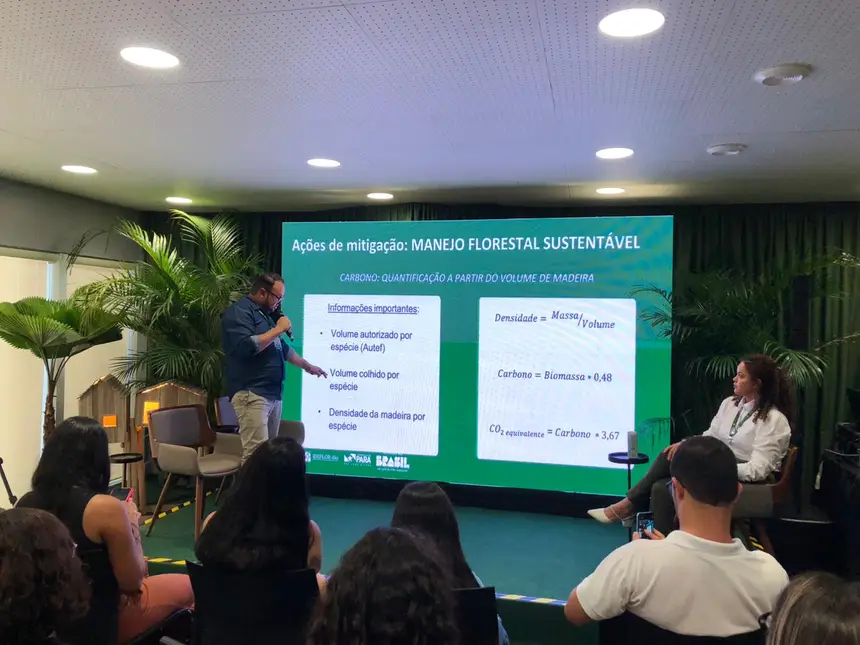
The manager also highlighted the positive social impact of the concessions, which generate jobs and economic opportunities for Amazon communities. By working with concessionary companies, local populations are trained and begin to integrate into sustainable production chains, strengthening the regional economy and promoting low-emission development.
Climate Mitigation - Thais Novais delved into the analysis of the mechanisms that make forest concessions effective instruments for climate mitigation. She explained that, in addition to combating deforestation, the model incorporates actions such as sustainable forest management, restoration of degraded areas, and continuous monitoring. These elements contribute to forests functioning as important carbon reservoirs, capturing and storing atmospheric CO₂ through natural regeneration and tree growth.

The forest engineer also presented data on the carbon balance in the concession areas, showing that the removal of trees authorized by management represents less than 3% of the total carbon stored. The necessary openings for roads and management infrastructure, according to her, also remain below 6% impact. "This demonstrates that forest concession is an effective public policy that benefits both nature and people," she emphasized.
Example for the world - Thais emphasized that bringing the project to COP30 is a strategic opportunity to increase the visibility of the Pará model and strengthen the recognition of its contributions to the international climate agenda. For her, presenting the functioning of the concessions with transparency and concrete data reinforces the credibility of the work being done and highlights Ideflor-Bio's commitment to mitigating the climate crisis in the Amazon.
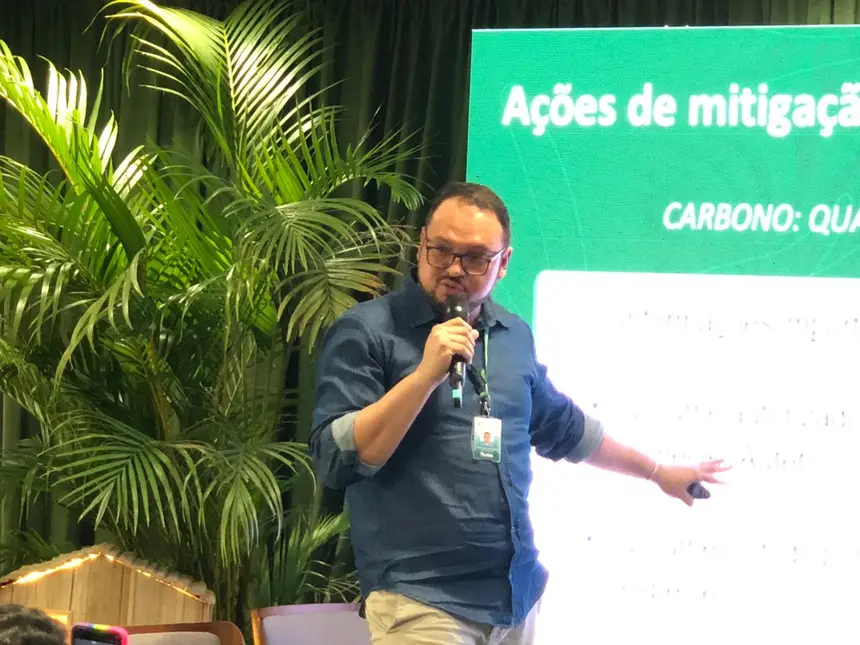
"The panel demonstrated that the forest concessions in Pará are today one of the most solid instruments of public environmental management in Brazil, uniting governance, sustainable production, and conservation. We are increasingly consolidating ourselves as an example of maintaining carbon stocks; the model reaffirms the strategic role of the state in protecting the Amazon and addressing climate change," concludes the manager.
Text in collaboration with Sinval Farias (Ascom/Ideflor-Bio)





